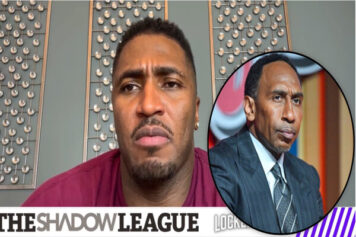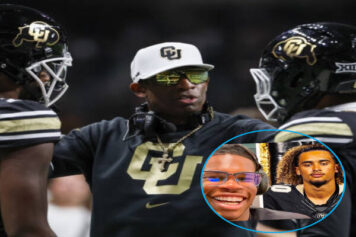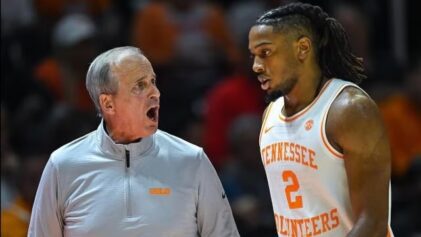The numbskull, brewski-induced behavior we saw from sports fans over the weekend didn’t come as a surprise for anyone who’s hip to the game. Chucking beer bottles on the field at a lame call, people reveling in a quarterback laying flat after a head-to-head collision with Haloti Ngata (not a laughing matter by any stretch), and running up on players at their cribs?
We’re looking at the catch-22 of the sports commodity that, at some point, all of us have been sold by the industry – the illusion that the product we consume as sports fans is actually of real substance to us personally, which is no less of a lie than Bobby Petrino reporting a motorcycle accident in the most obscure parts of Arkansas.
None of this sh*t matters. But to convince anyone of this would be counterintuitive to what makes sports fandom the phenomenon that it is. If the folks who drop cash to watch the games are as emotionally invested as the ones playing, coaching and managing; what you eventually get is a commitment too strong and knee-deep to call rational, or to renege.
Players turn out to be the collateral damage.
Take the infield fly rule called in the one-game Wild Card playoff Friday night at Turner Field. It looked like Braves fans were ready to flip the stadium upside down and shake it like a saltshaker after their team was denied the chance to make up for throwing that game into the sh*tter.
How would you like to be Carlos Beltran standing in right field with your back to these clowns in that situation? You neither, huh?
The late Leonard Koppett wrote books on sports, society and the role media plays in selling the illusion. It’s a well-oiled machine. It works so good that you don’t see yourselves getting played, and, half the time, promoters don’t see the real hustle.
On the surface, real business appears to be taking place with franchises trying to build winning teams and compete for entertainment dough. But do you ever wonder what it all really means?
What it shouldn’t mean is that people abandon intellect and reason, just because they grew up rooting for (insert your team here).
Public Enemy told us a long time ago, “Don’t believe the hype.” But we did it anyway. Now we have fantasy leagues and office pools that some us fans end up stressing almost as much (sometimes more) than our actual jobs. We have folks making even bigger asses of themselves cheering an injured man, as if whatever affinity they have for the Kansas City stinkin’ Chiefs or the resurgence of Brady Quinn’s career is more important than the well-being of a living and breathing person.
It’s fascinating stuff, man.



